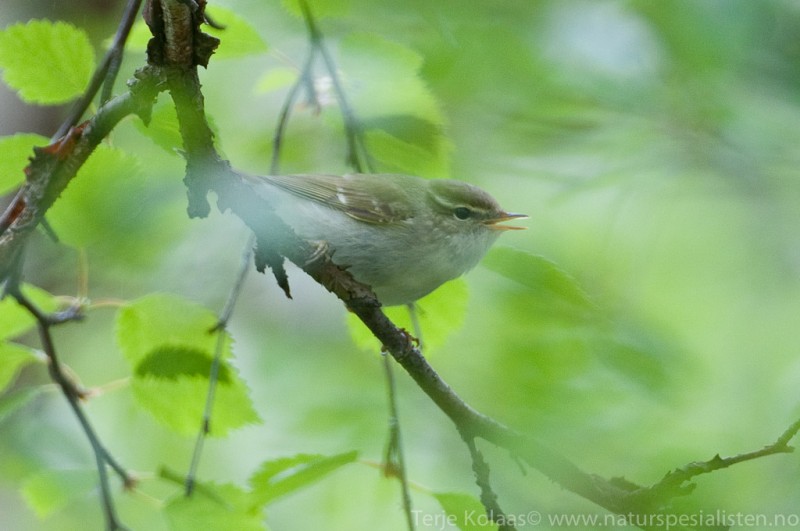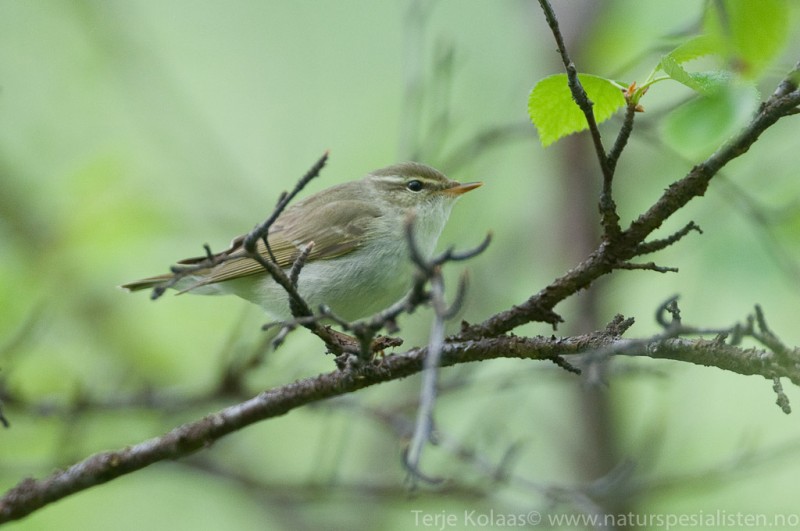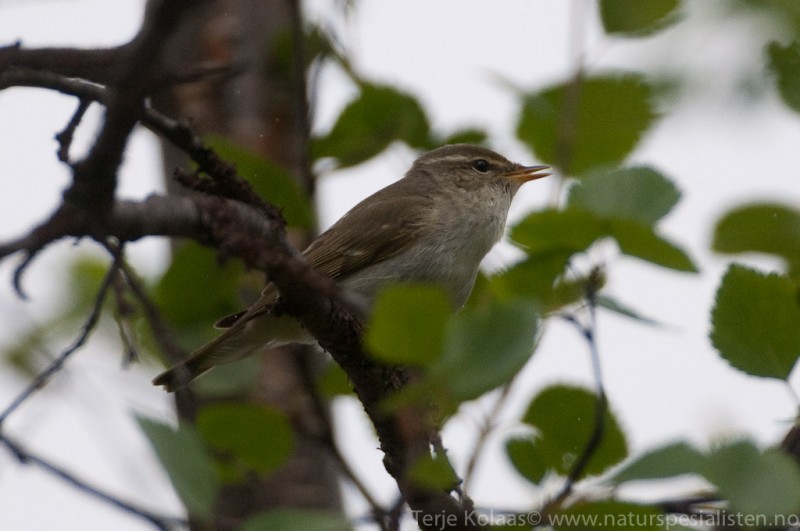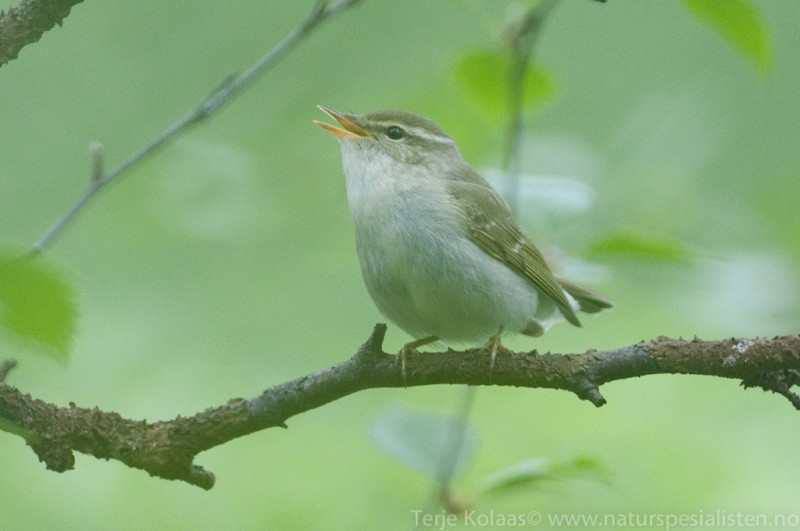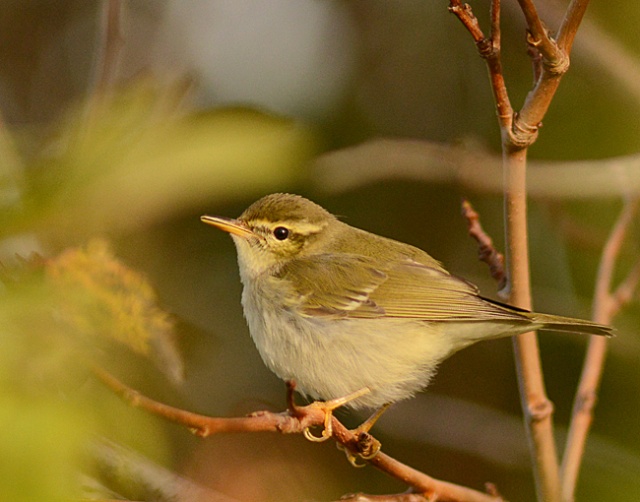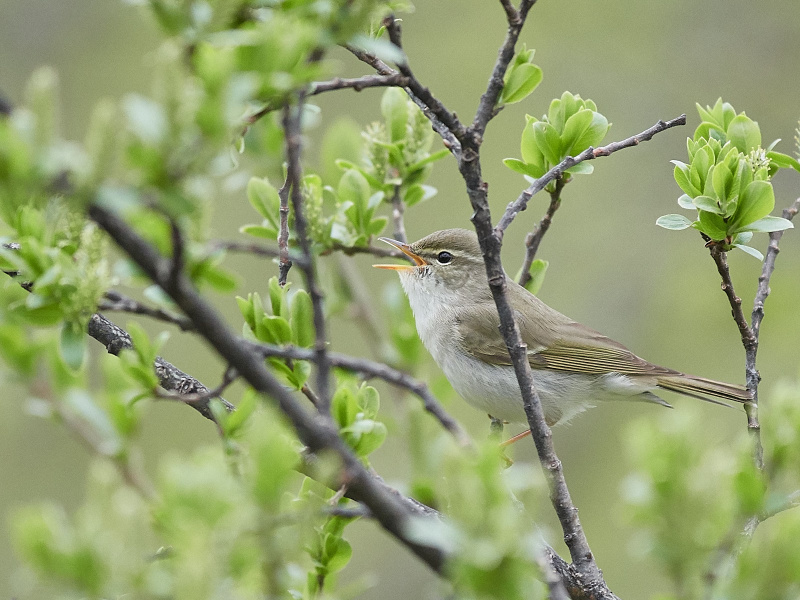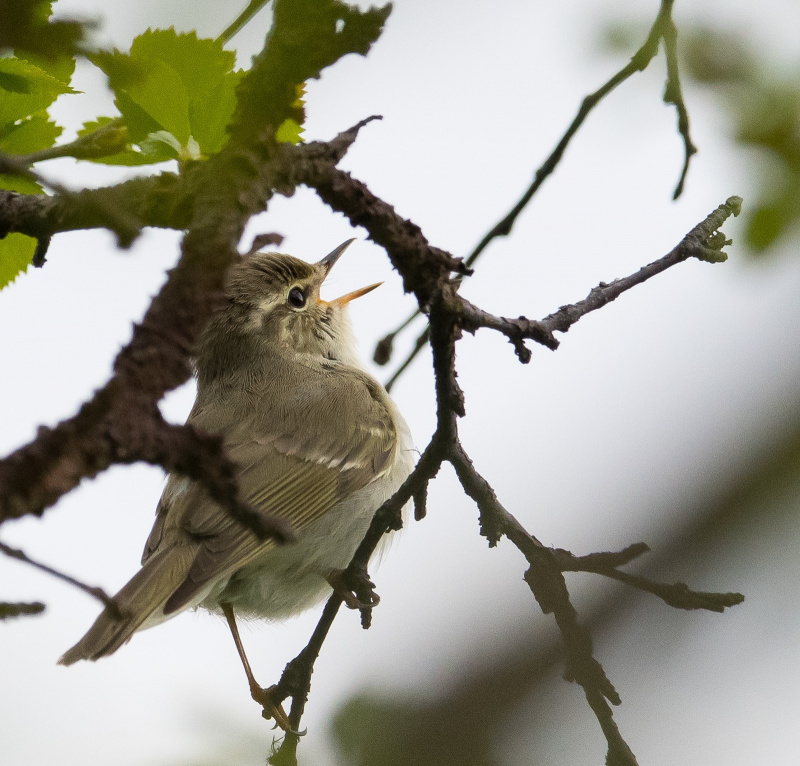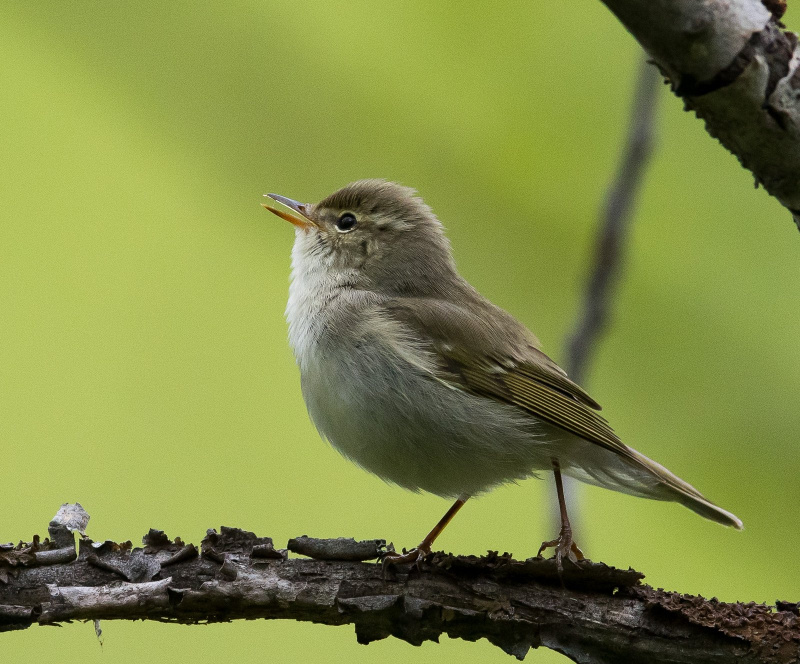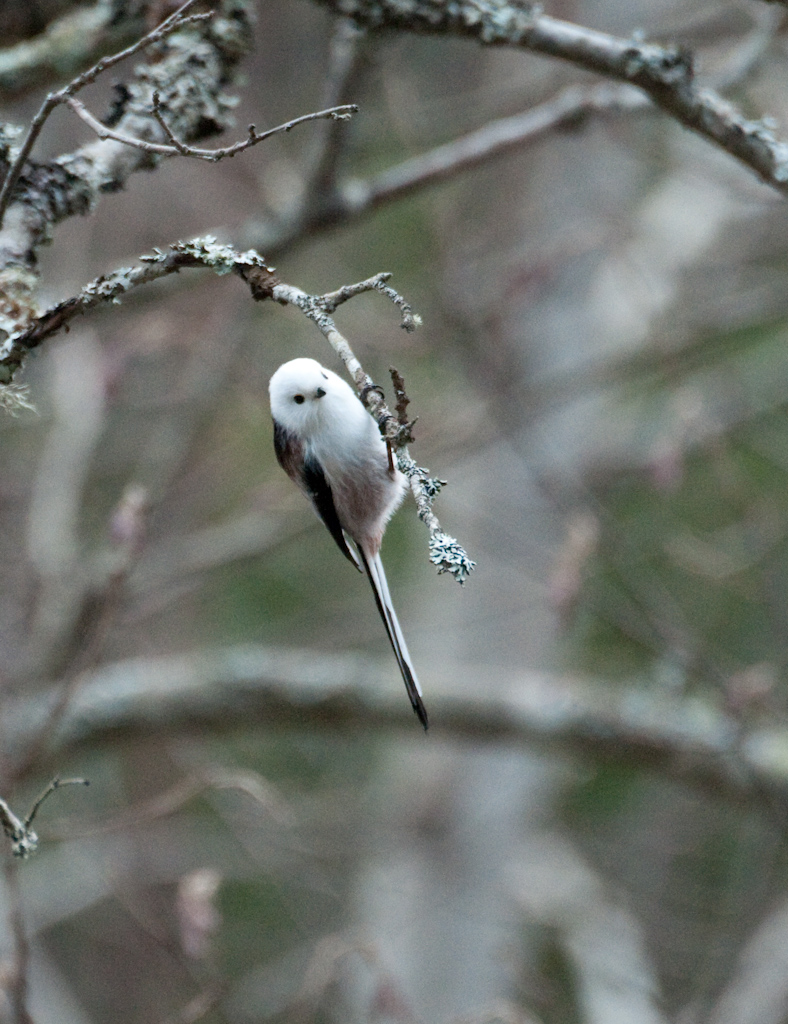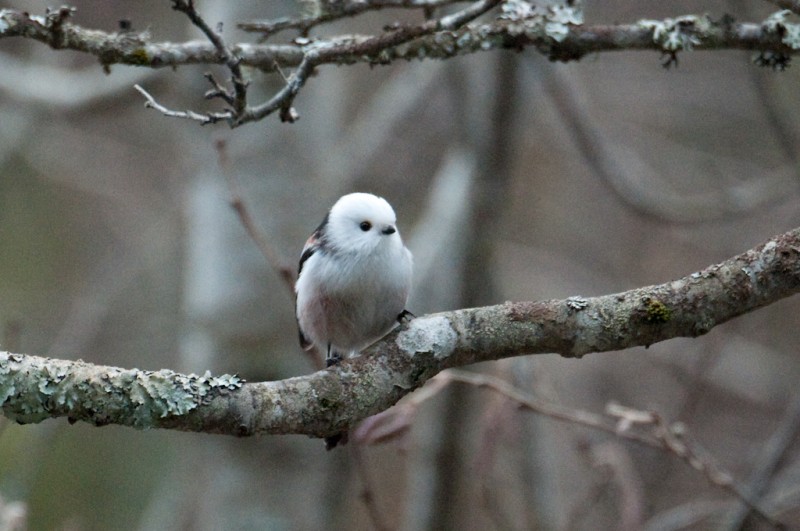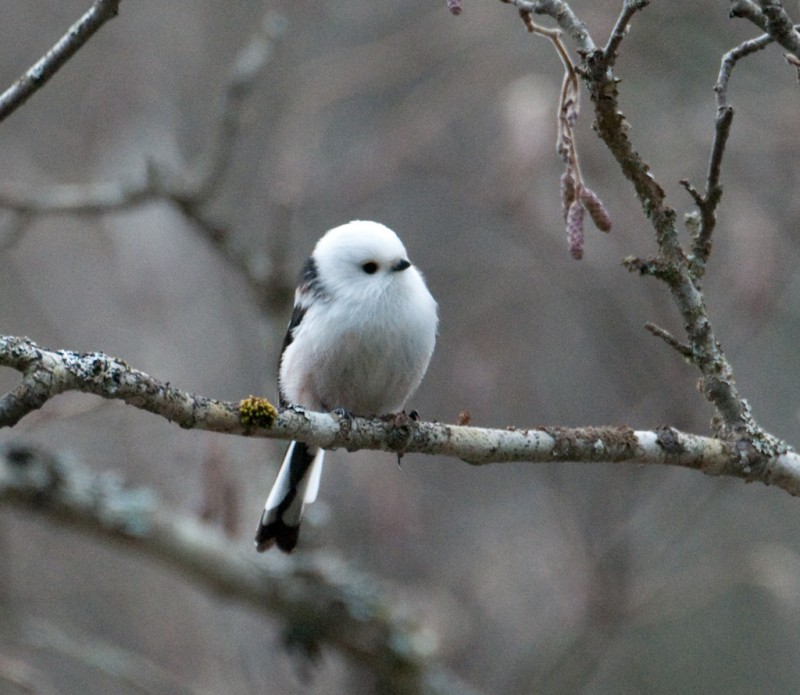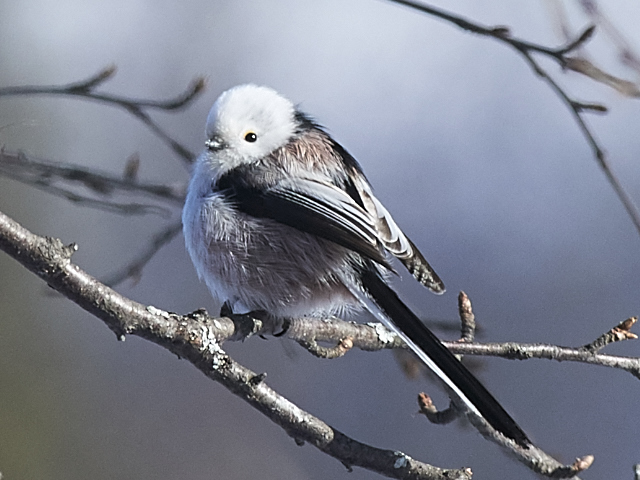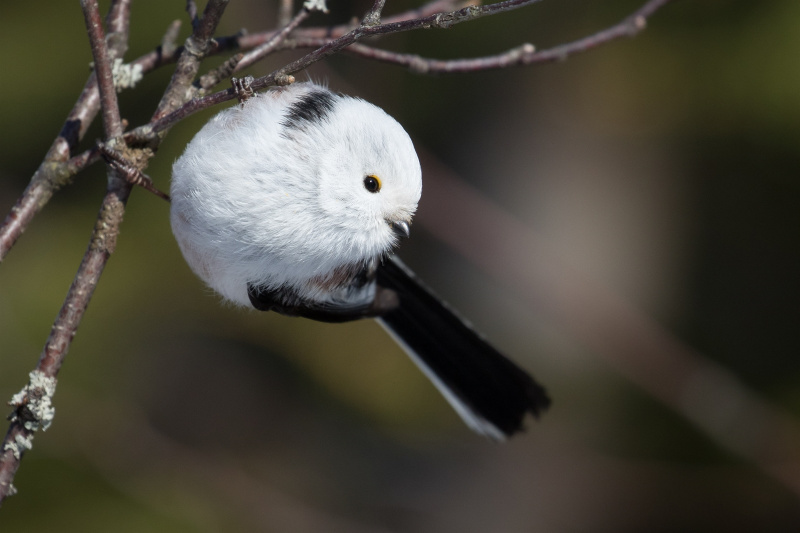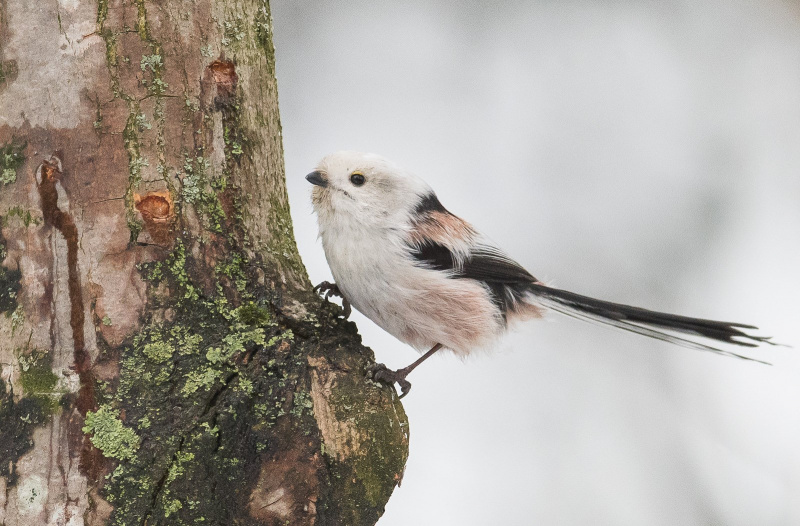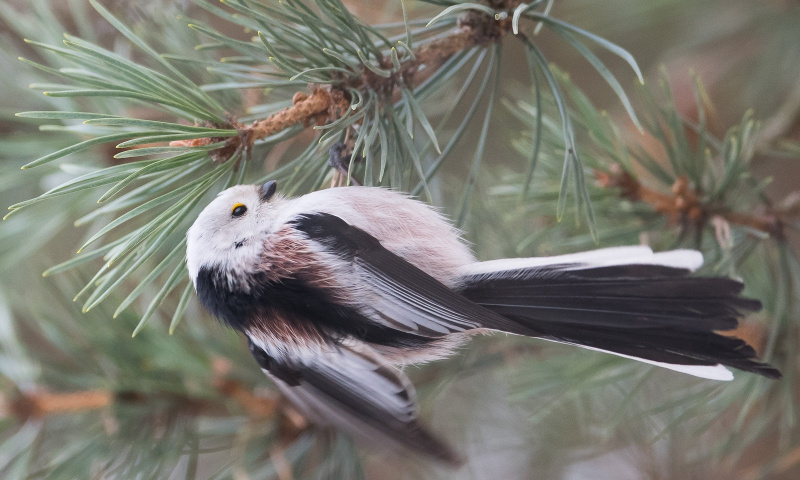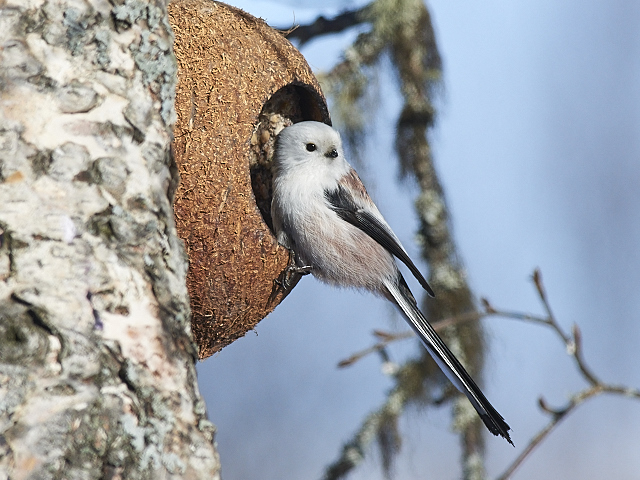Arctic Warbler (Phylloscopus borealis)
Long-tailed Tit (Aegithalos caudatus)
Like a large Willow Warbler, with distinct dark eye-stripe. Supercilium marked, but narrow. Starts at base of bill, continuing far behind eye. Wing-bar distinct on greater coverts, and sometimes on median coverts too. Primary projection long. Bill long and relatively heavy with orange base. Flanks often slightly grey, and throat sometimes with faint streaking. Appearance robust, but elegant. Moves faster and with more confidence than congeners.
Sound:Call and song diagnostic. Song a rattling series of 20-30 single syllables. Repeated as a monotonous phrase in stable pitch, lasting 2-4 seconds. Starts more softly with volume rising throughout each phrase. Contact call equally unique. A hard and short "tsrrt", recalling contact call of Dipper. Often given as introductory part of song.
Song (two variants) and calls:
Distribution:
Xeno-canto: map
Ecology:Birdlife ecology
Links:
Observation.org Latest observations
Image search Flickr NB! May give other species
CCUnmistakable. Extremely long tail and short wings. Fluttering and undulating flight, with peculiar silhouette like a small ball with a long tail. Head of Northern Europe sub.sp. completely white. Continental and British birds with broad, dark supercilium. Juveniles head dark with white crown and throat. Always active and on the move in small groups.
Sound:Song: Rapid, continuous, randomly composed sequence of bubbling,chirping sounds. Call: quite short, chirping, twittering "tzzirrret tzirrrret". Often starting at high pitch and rapidly falling, or just flat. Also a thin, slightly falling "zi zi ziii".
Contact call:
Distribution:
Xeno-canto: map
Ecology:Birdlife ecology
Links:
Observation.org Latest observations
Image search Flickr NB! May give other species
CC
 English
English Albanian
Albanian
 Armenian
Armenian
 Bulgarian
Bulgarian
 Catalan
Catalan
 Croatian
Croatian
 Czech
Czech
 Danish
Danish
 Dutch
Dutch
 Finnish
Finnish
 French
French
 Georgian
Georgian
 German
German
 Greek
Greek
 Hungarian
Hungarian
 Italian
Italian
 Latvian
Latvian
 Lithuanian
Lithuanian
 Macedonian
Macedonian
 Norwegian
Norwegian
 Polish
Polish
 Portuguese
Portuguese
 Romanian
Romanian
 Russian
Russian
 Sami : Lule sami
Sami : Lule sami
 Sami : North sami
Sami : North sami
 Sami : South sami
Sami : South sami
 Scientific names
Scientific names
 Serbian
Serbian
 Spanish
Spanish
 Swedish
Swedish
 Ukrainian
Ukrainian


